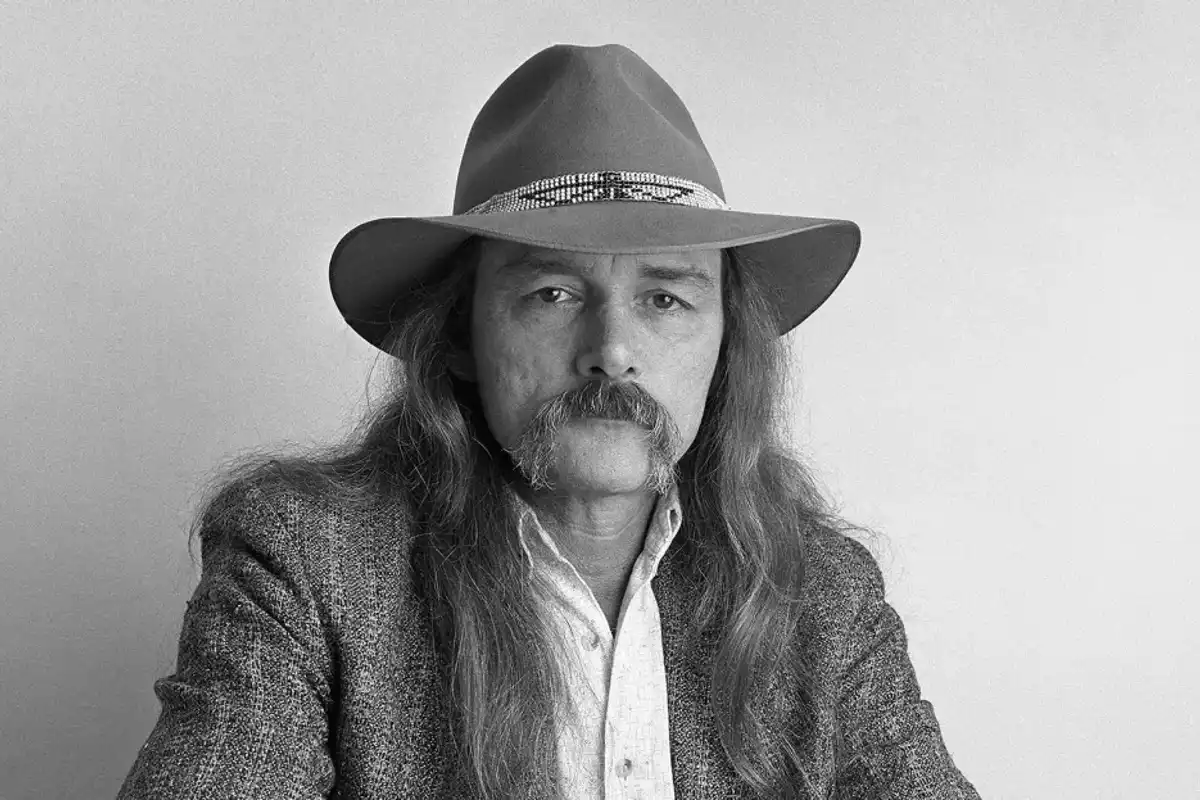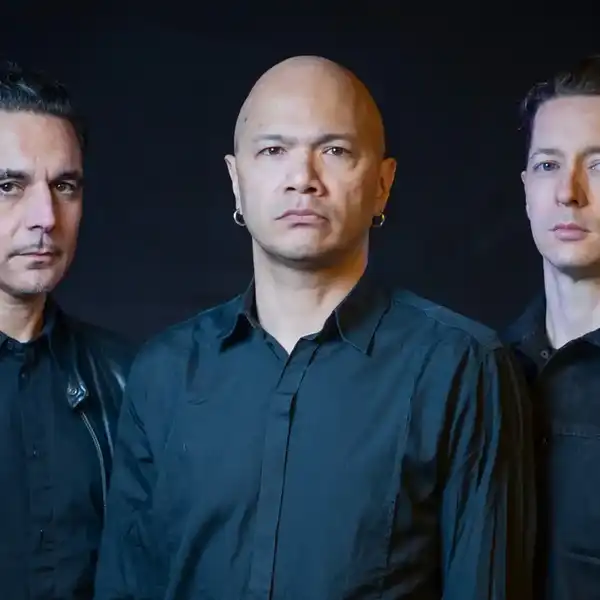Dickey Betts, Allman Brothers Band Guitarist, Co-Founder, Dies at 80
The singer and guitarist died on April 18 after battling cancer and chronic obstructive pulmonary disease.

Dickey Betts photographed on Feb. 10, 1980 in Miami, Fla.
Allman Brothers Band co-founder singer-guitarist Dickey Betts died on Thursday morning (April 18) at 80 following a battle with cancer and chronic obstructive pulmonary disease, according to Rolling Stone. His family also announced the death of the musician on his Instagram account.
“It is with profound sadness and heavy hearts that the Betts family announce the peaceful passing of Forrest Richard ‘Dickey’ Betts (December 12, 1943 – April 18, 2024) at the age of 80 years old. The legendary performer, songwriter, bandleader and family patriarch was at his home in Osprey, Florida, surrounded by his family. Dickey was larger than life, and his loss will be felt worldwide. At this difficult time, the family asks for prayers and respect for their privacy in the coming days. More information will be forthcoming at the appropriate time.”
An integral part of the Allman’s swampy, rambling Southern rock sound, Betts joined brothers Gregg and Duane Allman in 1969 in the group the siblings formed after splitting up their earlier band, the Allman Joys. Taking his place alongside drummers Butch Trucks, and Jaimoe and bassist Berry Oakley — Betts had played with Oakley in the band the Second Coming — Betts provided lead guitar as well as initially sharing vocals with Duane and Oakley before Gregg Allman stepped up to be the lead singer and primary songwriter.
Though he did not have a songwriting credit on the band’s 1969 self-titled debut album — which featured a mix of blues covers and Allman originals such as “Black Hearted Woman,” “It’s Not My Cross to Bear” and the furious blues guitar workout “Whipping Post” — he did land a few songwriting nods on their 1970s follow-up, Idlewild South. Along with his buoyant, album-opening acoustic jam “Revival” Betts contributed a song that would become one of the band’s signature extended jam showpieces, the explosive, jazz-influenced 7-minute workout “In Memory of Elizabeth Reed.”
In fact, on the band’s next album, the iconic 1971 live album At Fillmore East, fans who had not yet caught the group’s exploratory, expansive live show yet were treated to a nearly 13-minute version of “Reed” that showcased the jazz and Western swing influences Betts brought to the table. And, in keeping with their growing reputation as one of the most experimental, unpredictable American rock bands, that long walk was accompanied on side four by a furious, 22-minute “Whipping Post.”
As would be the case throughout the group’s half century run, drug use and tragedy struck just as things were heating up for the Allmans, sending Duane and Oakley to rehab in 1971, just months before Duane, 24, was killed in a motorcycle accident; a despondent Oakley crashed his motorcycle into the side of a bus a year later and died just blocks from the site of Duane’s accident.
While 1972’s hybrid studio-live album Eat a Peach would become one of their signature releases thanks to such iconic blues covers as “One Way Out” and “Trouble No More,” Betts penned and sang what would be the Allman’s only top 10 Billboard Hot 100 single, the AM radio staple “Ramblin’ Man,” which rose to No. 2 on the chart. Betts would also contribute lead and slide guitar as well as the a handful of lead vocals on the 1975 album Win, Lose or Draw.
Betts, born Forrest Richard Betts in West Palm Beach, Florida on Dec. 12, 1943, grew up listening to bluegrass and country music as a child and played in a number of rock band in his home state before being tapped to join the Allmans.
The group was inducted into the Rock and Roll Hall of Fame in 1995 and received a lifetime achievement award from the Recording Academy in 2012. In 1996, they won their only Grammy in competition –best rock instrumental performance for a new recording of “Jessica” from An Evening With the Allman Brothers Band: 2nd Set.
In 2017, the guitarist once told Rolling Stone that despite the bitter ending, he had fond memories of his time in the group. “I would’ve done something,” he said. “I would have worked for somebody landscaping. I was very pragmatic and industrious. But it wouldn’t have been as nice as what happened when I met up with that bunch of guys… I’ve had a great life and I don’t have any complaints. If I could do it again, I don’t know what I could do to make it different. There are lawsuits I probably could have dealt with better. But so what? You have to get in there and fight and do the best with your amount of time.”
Betts filed suit against his former bandmates over his sacking and never performed with them again, though he continued to tour with his own band for several years before retiring from music in 2017. Betts suffered a mild stroke in August 2018 after a brief return to the road in 2018 with a band that included his son, Duane.
According to RS, in December 2023 Betts attended an 80th birthday concert in his honor by the Allman Betts Family Revival Band.
See the Betts family statement and listen to some of Betts’ signature work below.During his stint in the group the unpredictable, mustachioed Betts — who famously inspired the wildman character Russell played by Billy Crudup in Cameron Crowe’s rock fantasia Almost Famous — released a series of solo albums, beginning with 1974’s jazz and country/bluegrass-flecked Highway Call, followed by 1977’s Dickey Betts & Great Southern (featuring a songwriting collab on “Bougainvillea” with actor Don Johnson) and, in 1979, Atlanta’s Burning Down, during the group’s first hiatus.
The Allmans came back in 1979 for the album Enlightened Rogues, but things went south again quickly and they called it quits once more in 1982. Betts continued to play shows and tour until 1989, when the group once again reformed with a new slide guitarist from Betts’ band, Warren Haynes. Three more Allman albums were released in the early 1990s, though Betts was not always on stage with the group when they toured later in the decade and he played his final show with the band in May 2000 at the Music Midtown Festival in Atlanta, after which he was fired for what the band dubbed “creative differences.”
The group was inducted into the Rock and Roll Hall of Fame in 1995 and received a lifetime achievement award from the Recording Academy in 2012. In 1996, they won their only Grammy in competition –best rock instrumental performance for a new recording of “Jessica” from An Evening With the Allman Brothers Band: 2nd Set.
In 2017, the guitarist once told Rolling Stone that despite the bitter ending, he had fond memories of his time in the group. “I would’ve done something,” he said. “I would have worked for somebody landscaping. I was very pragmatic and industrious. But it wouldn’t have been as nice as what happened when I met up with that bunch of guys… I’ve had a great life and I don’t have any complaints. If I could do it again, I don’t know what I could do to make it different. There are lawsuits I probably could have dealt with better. But so what? You have to get in there and fight and do the best with your amount of time.”
Betts filed suit against his former bandmates over his sacking and never performed with them again, though he continued to tour with his own band for several years before retiring from music in 2017. Betts suffered a mild stroke in August 2018 after a brief return to the road in 2018 with a band that included his son, Duane.
According to RS, in December 2023 Betts attended an 80th birthday concert in his honor by the Allman Betts Family Revival Band.
See the Betts family statement and listen to some of Betts’ signature work below.

















